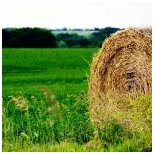
its true...
i have a pile of washing to do overflowing from the bathroom. slowly creeping towards the door
the dishes just stand in the sink and then invite others over to mingle
i dont even make the bed anymore
i just crawl back in it...
all the time holding my book 5 inches away from my face...
Lisey's Story

Conrad Walters, reviewerNovember 17, 2006
Billed as a move away from horror, Stephen King's latest novel still sends shivers down the spine.
An invisible worm-like thing slips behind your cornea, circles the temporal lobe and locates your spinal cord. It slithers down, wrapping itself like a boa constrictor around each vertebra, and progressively immobilises you. Then, just as you struggle for what may be your final breath, the thing gnaws its way out. You reach instinctively for the exit wound, just below your hip, but too late - it has already extracted the cash from your wallet.
Horror offers such guilty pleasures. Suspend disbelief and it worms its way in. This time, Stephen King asks readers to suspend disbelief for the tale of Lisey Landon, the widow of Scott Landon, a witty, prolific, successful horror author (gosh, who might that be?). For two years Lisey has procrastinated in dealing with Scott's writing room but when she dives into the "booksnake" of his literary estate, she becomes ensnared in the dark source of his talent.
While alive Scott described a pool of inspiration where writers drink in the words and stories of their craft. But for Scott it is more than a metaphor; it is a place he calls Boo'ya Moon. As a boy he played on its idyllic hill to escape a maniacal father during the day and he fled before its howling, ravenous occupants arrived at night.
When Lisey is haunted by a literary loony on the pretext of wanting Scott's manuscripts she must find and visit Boo'ya Moon to decipher clues Scott left to help her survive on her own.
If all you seek is guilty pleasure, begin chapter one now. Nothing from here on will - or should - change a fan's opinion about King or his latest book. But it's worth noting two elements that distinguish Lisey's Story from run-of-the-mill works of horror.
First, with more than 40 novels to his credit, King again proves himself the master of his craft. At times Lisey's Story juggles multiple concurrent flashbacks with precision. And, amid a plot that rarely draws breath, King evokes the passion of the Landon couple by deploying the private language that lovers amass after decades together. (King's publisher is promoting this as a literary love story in the hope of luring new readers but it's a mighty long leap.)
Second, King has much to say about writing. This is not new terrain. The Shining involved an author who retreats to a snowbound hotel to write and Misery centred on an author held captive by an obsessive fan. But Lisey's Story and its notion of a pool where writers quench their creative thirst is intriguing.
King imbues this pool with mythic qualities: it is timeless, inexplicable, rejuvenating, dangerous.
"Sometimes the really brave fisherfolk - the Austens, the Dostoevskys, the Faulkners - even launch boats and go out to where the big ones swim but that poolis tricky. It's bigger than it looks, it's deeper than any man can tell, and it changes aspect, especially after dark."
But Lisey's Story has flaws, too. At several key points decisions don't ring true. In one, a character watches a video rather than prepare for the impending arrival of a homicidal lunatic.
King addresses this unwillingness in readers (and editors) to accept such leaps. "Reality is Ralph," Scott Landon says, referring to a strange-but-true newspaper article about a border collie that returns home after three years.
The problem with this assertion is that while we readily suspend disbelief for supernatural elements, we still demand believable behaviour from sympathetic characters. Otherwise we do not share their fear and reap the heart-thumping reward of horror.
But King answers this analysis, too. Lisey recalls Scott's disdain for "academics who maintained their positions ... by examining the literary equivalent of navel lint in each other's abstruse academic journals; ambitious, over-educated goofs who had lost touch with what books and reading were actually about and could be content to go on spinning straw into footnoted fool's gold".
Putting aside the settling of old scores, this is a roller-coaster ride that will thrill many. But if King is looking for the path to literary respectability the road turns off well before Boo'ya Moon.
An invisible worm-like thing slips behind your cornea, circles the temporal lobe and locates your spinal cord. It slithers down, wrapping itself like a boa constrictor around each vertebra, and progressively immobilises you. Then, just as you struggle for what may be your final breath, the thing gnaws its way out. You reach instinctively for the exit wound, just below your hip, but too late - it has already extracted the cash from your wallet.
Horror offers such guilty pleasures. Suspend disbelief and it worms its way in. This time, Stephen King asks readers to suspend disbelief for the tale of Lisey Landon, the widow of Scott Landon, a witty, prolific, successful horror author (gosh, who might that be?). For two years Lisey has procrastinated in dealing with Scott's writing room but when she dives into the "booksnake" of his literary estate, she becomes ensnared in the dark source of his talent.
While alive Scott described a pool of inspiration where writers drink in the words and stories of their craft. But for Scott it is more than a metaphor; it is a place he calls Boo'ya Moon. As a boy he played on its idyllic hill to escape a maniacal father during the day and he fled before its howling, ravenous occupants arrived at night.
When Lisey is haunted by a literary loony on the pretext of wanting Scott's manuscripts she must find and visit Boo'ya Moon to decipher clues Scott left to help her survive on her own.
If all you seek is guilty pleasure, begin chapter one now. Nothing from here on will - or should - change a fan's opinion about King or his latest book. But it's worth noting two elements that distinguish Lisey's Story from run-of-the-mill works of horror.
First, with more than 40 novels to his credit, King again proves himself the master of his craft. At times Lisey's Story juggles multiple concurrent flashbacks with precision. And, amid a plot that rarely draws breath, King evokes the passion of the Landon couple by deploying the private language that lovers amass after decades together. (King's publisher is promoting this as a literary love story in the hope of luring new readers but it's a mighty long leap.)
Second, King has much to say about writing. This is not new terrain. The Shining involved an author who retreats to a snowbound hotel to write and Misery centred on an author held captive by an obsessive fan. But Lisey's Story and its notion of a pool where writers quench their creative thirst is intriguing.
King imbues this pool with mythic qualities: it is timeless, inexplicable, rejuvenating, dangerous.
"Sometimes the really brave fisherfolk - the Austens, the Dostoevskys, the Faulkners - even launch boats and go out to where the big ones swim but that poolis tricky. It's bigger than it looks, it's deeper than any man can tell, and it changes aspect, especially after dark."
But Lisey's Story has flaws, too. At several key points decisions don't ring true. In one, a character watches a video rather than prepare for the impending arrival of a homicidal lunatic.
King addresses this unwillingness in readers (and editors) to accept such leaps. "Reality is Ralph," Scott Landon says, referring to a strange-but-true newspaper article about a border collie that returns home after three years.
The problem with this assertion is that while we readily suspend disbelief for supernatural elements, we still demand believable behaviour from sympathetic characters. Otherwise we do not share their fear and reap the heart-thumping reward of horror.
But King answers this analysis, too. Lisey recalls Scott's disdain for "academics who maintained their positions ... by examining the literary equivalent of navel lint in each other's abstruse academic journals; ambitious, over-educated goofs who had lost touch with what books and reading were actually about and could be content to go on spinning straw into footnoted fool's gold".
Putting aside the settling of old scores, this is a roller-coaster ride that will thrill many. But if King is looking for the path to literary respectability the road turns off well before Boo'ya Moon.








No comments:
Post a Comment